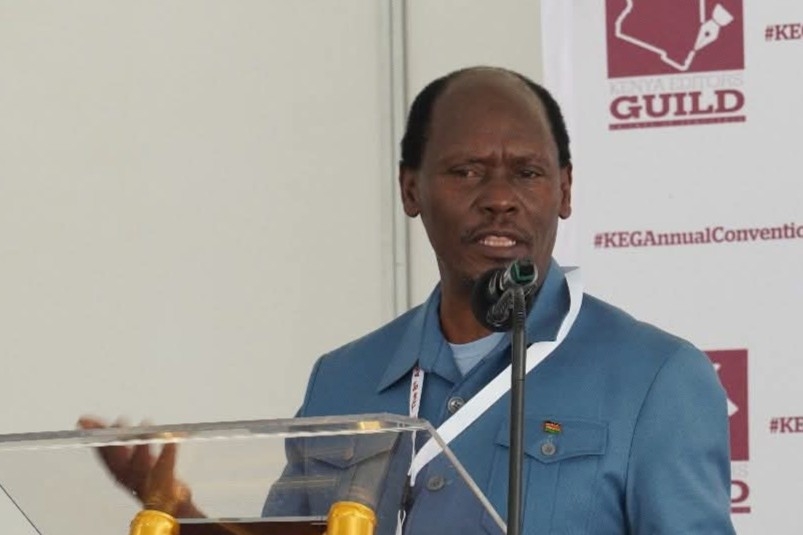

African nations have pursued economic independence for decades, yet many still grapple with fragile economies, high unemployment, and external financial dependency.
While sectors like health and education remain critical, the path to true economic self-reliance demands a fundamental shift in priorities towards agriculture, manufacturing, and enterprise.
African nations require these three pillars as their foundation for sustainable economic transformation, which enables them to decrease imports, create employment, and establish economically resilient nations.
The majority of African governments dedicate significant public funding toward health and education as instructed by the policies developed by donor agencies.
Implementing educational and healthcare programmes as main national priorities generates a contradictory result because it creates well-educated populations without enough employment opportunities.
Countries like Kenya, Nigeria, and South Africa produce thousands of graduates yearly, yet unemployment remains challenging.
At present, healthcare systems face financial challenges due to economic inefficiencies.
A poor economy means insufficient financial resources necessary to develop powerful healthcare institutions.
Any social programme intended to help people will eventually fail unless society develops enough economic strength to sustain them.
Agriculture continues serving as the fundamental economic foundation of Africa because it provides employment to more than 45 per cent of its population.
The industry has many problems, including low agricultural productivity, which depends heavily on rain-fed agriculture and adds little economic value to its products.
While countries like Ethiopia and Ghana have made strides in agro-processing, the continent largely exports raw materials, missing out on the benefit of value-added production.
By implementing large-scale mechanised farming irrigation systems and research-based agribusiness investments, Africa can optimise its food security and generate employment while boosting export opportunities.
The ability of a whole continent to meet its food requirements without importing creates economic benefits by reducing annual expenditures of billions of dollars from African economies.
Africa’s overreliance on imported goods is a major economic setback. Most products consumed, from essential household items to high-end technology, are imported, leading to trade imbalances and currency depreciation.
The continent needs to build a strong manufacturing industry that will allow it to produce its own goods instead of continuing with imports.
Countries like Rwanda and Egypt have proven that strategic policy decisions can foster local manufacturing.
The Made in Rwanda initiative has contributed to declining imports by promoting textile and construction material production within the country.
Precise measures by national governments should include programmes to support domestic industries, streamlined bureaucracy, and industrial park investments.
African manufacturers can use the African Continental Free Trade Area to expand their operations by gaining access to more customers across the continent.
A single African market will support industrial expansion, which leads to reduced external dependency in supply chain operations.
The economic expansion of Africa depends on entrepreneurship, but local businesses encounter multiple challenges that block their success, including restricted funding access, steep tax rates, and poor infrastructure.
Businesses need governments to establish conditions that allow their success. The potential of a tech-driven enterprise remains very high due to its unique characteristics.
The fintech ecosystem in Kenya continues to thrive because innovation acts as a driver that enables economic growth within the nation.
The scale of technology startup ventures requires government support through reduced regulations, expanded digital infrastructure, and more investment from private enterprises.
To achieve true economic independence, African policymakers must: First, reallocate resources to economic drivers. Governments should channel more funds into agriculture, manufacturing, and entrepreneurship instead of overprioritising health and education.
Second, implement proindustrialisation policies. African nations should offer tax incentives for local industries, protect nascent industries from unfair foreign competition, and promote local content policies. Third, invest in agricultural transformation.
Large-scale mechanisation, irrigation systems, and agro-processing industries should be prioritised to create value chains that benefit local farmers. Fourth, strengthen enterprise support mechanisms.
Governments must facilitate access to credit, reduce business registration costs, and invest in digital infrastructure to empower startups.
And finally, leverage regional trade agreements. AfCFTA presents an opportunity for Africa to build self-sustaining industries and reduce reliance on Western and Asian markets.
The sustainable growth of Africa depends on internal wealth generation because it leads to enduring economic success.
A strong foundation of agriculture production must support health services and education, while enterprise development and manufacturing create the base for financial sustainability.
By focusing on these pillars, African nations can make their economies independent from outside sources while they generate lasting employment opportunities for their people into the future. The time for rethinking Africa’s economic priorities is now.
The path forward is clear—embrace self-sufficiency through production, innovation, and industrialisation. Only then can Africa achieve true financial independence.
Jamlic Munyasya is an economist
and a business consultant














![[PHOTOS] Ruto present as NIS boss Noordin Haji's son weds](/_next/image?url=https%3A%2F%2Fcdn.radioafrica.digital%2Fimage%2F2025%2F11%2Ff8833a6a-7b6b-4e15-b378-8624f16917f0.jpg&w=3840&q=100)




